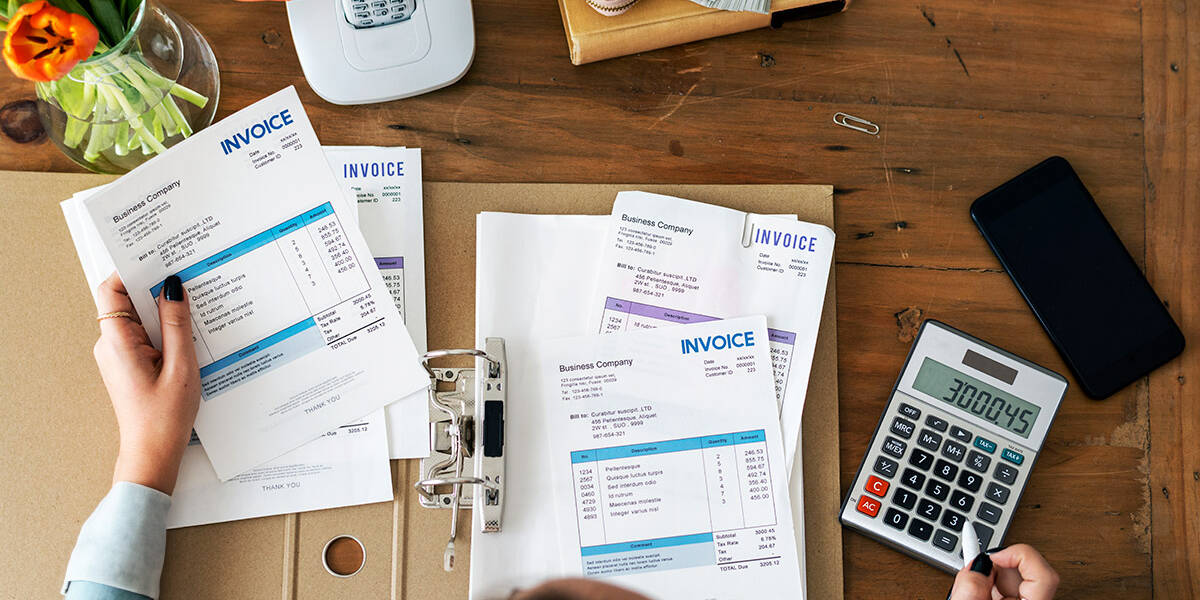

As a business owner in Hong Kong, there are a significant number of taxation matters that require your attention. For instance, it is important to know when the Hong Kong corporate tax return due date for your company is to ensure your tax returns are filed on time.
Establishing a Hong Kong business is one of the main goals of many entrepreneurs. They can’t get over the numerous benefits of starting your business within the borders of this state. One of the most popular benefits of running your business in Hong Kong is its favorable tax rate.
While other regions have stiffened tax regulations, Hong Kong’s approach has been quite liberal. Hong Kong is popularly called a business-friendly region, and it’s not surprising to find numerous start-ups there today.
This guide will teach you everything you should know about corporate tax in this region, including the Hong Kong corporate tax return due date.
Hong Kong Corporate Tax Return Due Date: Territorial Tax System
Before diving into the details of the Hong Kong corporate tax return due date, you must first gain a better understanding of the Hong Kong taxation system. The first thing you must note about Hong Kong’s corporate tax system is that it’s a territorial one. We will discuss more of that later.
This territorial tax system ensures that corporate taxes charged in the region are done at a flat rate. Yes, everyone will be charged at a similar rate to others. What’s more? Tax incentives have also been included to offer optimal benefits and increase the region’s competitiveness.
As more benefits are rolled out, Hong Kong will cement its place as the top startup hub in the Asia-Pacific region. Hong Kong’s territorial tax system means that tax will only be charged on profits from business activities within the region.
Businesses whose primary source of profit stems from activities in other jurisdictions will not pay the traditional profit tax. Yes, a company can operate primarily out of Hong Kong but generate most of its profit elsewhere. This may be a common feature of service-based companies.
You need to clearly understand that the territorial system in this region has nothing to do with your residency – resident or non-resident. You may be a Hong Kong resident, but if your assessable profits are derived elsewhere, you won’t be subject to corporate profit tax.
On the other hand, non-residents that earn profit from business activities in Hong Kong are expected to comply with corporate tax regulations. The tough job is identifying those whose business activities or profits are generated in Hong Kong and those that earn from other jurisdictions.
Well, you must understand that this information can only be determined by fact. But every business owner should learn about it to avoid sanctions.
If you’re a start-up, you may do well to research and read about previous court cases regarding corporate tax and important filing deadlines such as the Hong Kong corporate tax return due date.
Hong Kong Corporate Tax Return Due Date: Two-Tier Tax Regime
Another important aspect to note before getting into the information about the Hong Kong corporate tax return due date is that the two-tier tax regime. There are two profit tax rates applied to Hong Kong organizations. They are called ‘the two-tier tax regime’ and include:
1. Single-Tier Corporate Tax System
Corporations that use the single-tier corporate tax system will pay a corporate tax of 16.5%. But unincorporated businesses are hosted at 15%.
2. Two-Tier Profits Tax System
The two-tier profit tax regime applies to corporations and unincorporated businesses. It lowers the tax rate for the first HK$2m profit. This tax regime became effective from the 2018/2019 financial assessment year (the taxpayer’s financial year running from 1 April 2018 to 31 March 2019.
The purpose of this system was to reduce the tax burden for small and medium enterprises. Under this new tax system, corporations’ first HK$2 million profit will be taxed at half the previous tax rate – 8.25%. After this, the tax rate will return to 16.5%. However, unincorporated businesses will enjoy a tax rate of 7.5% for their first HK$ 2 million. Subsequent profits will be charged at 15%.
Only one entity in a group of inter-owned companies can enjoy the two-tier tax system. The group of companies would need to decide who would enjoy this benefit.
The following table explains the two-tier corporate tax regime:
| Assessable Profits | Tax Rate For Corporations | Tax Rates For Unincorporated Businesses |
| First HK$2 million | 8.25% | 16.5% |
| Over HK$2 million | 7.5% | 15% |
To maintain a balanced and fair system, the following entities are not allowed to be a part of the two-tier tax regime:
- Entities that chose the half-rate preferential tax system (e.g. captive insurance companies, professional reinsurance companies, corporate treasury centres, and aircraft leasing companies)
- The assessable profit for assets owned by holders of qualifying debt instruments whose gains or profits are already taxed at half the regular rate
- Entities that exist as a group of companies. Only one firm in the group will be eligible for the reduced tax rate.
Hong Kong Corporate Tax Return Due Date: Tax Incentives
Before getting into the Hong Kong corporate tax return due date details, you must also know what kind of income will be taxed and what are the tax incentives you may be entitled to. It was mentioned earlier that Hong Kong also offers tax incentives to small and medium businesses.
These tax incentives include:
- High-value manufacturing businesses enjoy a 100% write-off of new expenditures on plants and equipment meant for manufacturing. This also includes hardware and software that are owned by end-users.
- There’s a 5-year write-off for expenditure on improving or repairing your business premises.
- Exemptions on the interest gained from deposits into any authorized organization after 22 June 1998 (not applicable to interest earned from a financial institution)
- Tax concessions on trusts and mutual funds
- 100% profit tax deduction for purchasing environmentally friendly vehicles. This tax deduction is effective from the year of purchase and became effective from the 2010/2011 assessment year.
- 100% profit tax deduction for installing environmental protection devices. This deduction began after the 2018/2019 assessment year.
- 50% tax deduction for offshore risk/insurance business. This concession for captive insurers began in the 2013/2014 assessment year.
- Since 1 April 2017, qualifying aircraft lessors will enjoy half the corporate profit tax rate. These lessors will also benefit from a tax base concession which allows them to use 20% net lease rentals to settle depreciation allowances on aircraft.
- Since 1 April 2019, funds that are based in Hong Kong can enjoy profit tax deductions on their transactions. However, these tax deductions are based on certain conditions. It will apply to all funds based in Hong Kong, even if they have different structures, purposes, sizes or locations of management and control. Funds may also enjoy profit tax deductions on investments in local and foreign private companies
- Since 1 April 2018, there are profit tax deductions when companies purchase intellectual property rights. This may include the purchase of copyrights, patents, know-how, registered trademarks, rights in performances, and rights in plant varieties.
Hong Kong Corporate Tax Return Due Date: Measuring Income Tax
Now that you know what tax incentives you are entitled to, you are one step closer to calculating your tax return and ensure compliance with filing before your company’s Hong Kong corporate tax return due date.
To calculate the corporate tax, you’ll need to measure the income in the assessment year. This year usually runs from 1st April – 31st March. The Hong Kong Inland Revenue Department will focus on the revenue generated during the accounting period that falls within the assessment year.
Hong Kong Corporate Tax Return Due Date: Corporate Profit Tax Returns
So, when exactly is the Hong Kong corporate tax return due date for your company?
Companies are expected to file their tax returns on 1 April every year. Since the 2018/2019 assessment year, companies now have access to several types of supplementary forms that can be used to file profit taxes.
Companies or taxpayers are expected to fill out the form that suits their business operations with the appropriate returns. As mentioned earlier, the basis of the tax assessment will be the accounting profit for the financial year that ended during the tax assessment year.
The tax return will be sent to the Hong Kong Inland Revenue Department along with a digital computation of how the company arrived at taxable profits or any allowable tax losses they have prepared. When filing a tax return, taxpayers are also expected to submit their audited accounts.
Only organizations that qualify as small corporations, as defined by HKIRD, are exempt from this. The HKIRD identified small corporations as those with a gross income of less than HK$2 million, along with other conditions.
Small corporations are not required to submit supporting documents but are still expected to prepare, keep and submit them on request. A newly registered business’s Hong Kong corporate tax return due date is 18 months after the company began business operations.
Hong Kong Corporate Tax Return Due Date: How To File Corporate Tax Return
Each company is expected to file tax returns with the following documents before the Hong Kong corporate tax return due date:
- The profits tax return form that was sent to you by the Inland Revenue Department
- The supplementary form sent to you for your tax and financial data
- An original copy of the balance sheet, profit and loss account, and auditor’s report for the last accounting year
- A tax computation that displays the value of taxable profits
- Other documents and information that’s specified in Notes and Instructions
Hong Kong Corporate Tax Return Due Date: Filing Deadlines
You may be wondering if there are specific deadlines for the Hong Kong corporate tax return due dates. The duration for the corporate tax return is not particularly lengthy. The filing deadline will last for one month after the tax return is issued.
However, companies that have their financial year end between 1 December and 31 March and who have hired a tax representative are usually able to get an extension to file these returns. Hong Kong companies’ filing due dates depend on the exact period their accounting year ends.
How Can We Help – Our Taxation Services
By now, you’re already aware that the Hong Kong Inland Revenue Department requires companies to file their returns before their Hong Kong corporate tax return due date. This law affects sole traders, partnerships and limited liability companies.
You also have to submit audited reports and other supporting documents with your tax returns. This may be plenty of work that you may be unable to fit into your business operations. Therefore, you’ll need professional help from our trusted taxation experts.
Premia TNC is a trusted service provider that can help you with accounting and taxation services. We have professionals that can perform your financial statements, including income statements and balance sheets.
When you work with us, we’ll take the burden off your in-house accounting department. We’ll also ensure you stay compliant with tax authorities by handling your profit tax return.
We’re familiar with the process and can help you compile all the necessary documents to file your returns before the Hong Kong corporate tax return due date.
Hong Kong Corporate Tax Return Due Date – Frequently Asked Questions
1. What is the provisional profits tax?
It’s common knowledge that the correct value of the corporate profit tax can only be determined at the end of the financial year. However, the Inland Revenue Department will issue an estimated tax based on the previous year’s profits.
This estimated figure is referred to as the provisional profits tax. It’s usually paid in two instalments, with the first being 75% of the entire liability and the second 25% of the entire liability.
2. What is the withholding tax?
Withholding tax is levied on royalties and fees paid to entertainers or sportspeople. The tax is usually charged on taxable profits. However, withholding tax is not set on dividends and interest.
3. How is tax treated during a financial year loss?
If a company suffers a loss during its financial year, this amount will be carried forward and offset with future profits. However, companies involved in more than one business operation may use the loss from one function to offset that of another.
Hong Kong does not allow a group of companies to transfer loss between their entities. Losses cannot also be carried back.
4. What is taxable income?
Hong Kong companies are charged corporate profit tax based on their taxable income. A company’s taxable income is calculated after adjustments have been made to the company’s net profit/loss.
These adjustments may include the deduction of business expenses, capital allowances and unutilized losses.
5. What is Hong Kong’s corporate tax rate?
Hong Kong’s corporate tax rate is 16.5%. However, tax authorities will only charge 8.25% on taxable profits up to HK$2 million. However, the taxable income of more than HK$2 million will be charged at 16.5%.
However, tax benefits can offer you some form of leeway in handling some aspects of your total tax liability. It is the responsibility of your company to ensure compliance with the Hong Kong corporate tax return due date and regulations.
6. Are there any punishments for those who fail to file tax returns?
If you fail to file your tax returns before the Hong Kong corporate tax return due date, you’ll be breaching a necessary government regulation.
While there’s no laid-down punishment for offenders, the Inland Revenue Department will sanction your company. You may be asked to pay a fine, or limits will be placed on your business operations till all issues are settled.

premiatnc
View All BlogsRelated Posts
April 15, 2024
Trademark Registration In Hong Kong: What You Should Know
Trademark registration in Hong Kong…
April 15, 2024
Importance of Hong Kong Company Financial Statements: How to Prepare It Well
In the realm of business, Hong Kong…
March 29, 2024
Everything You Need to Know About Hong Kong Invoice Requirements
Compliance ensures smooth financial…




